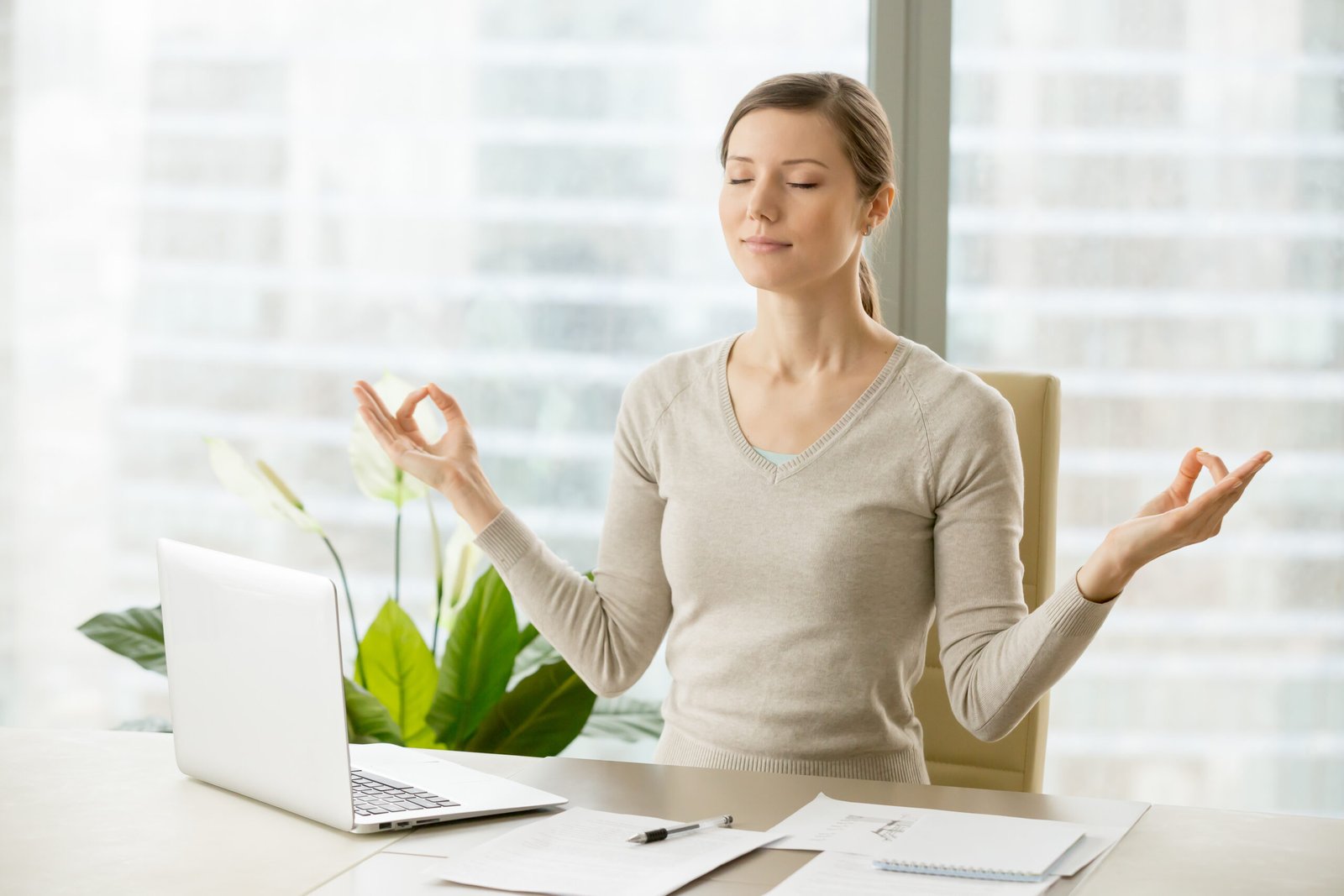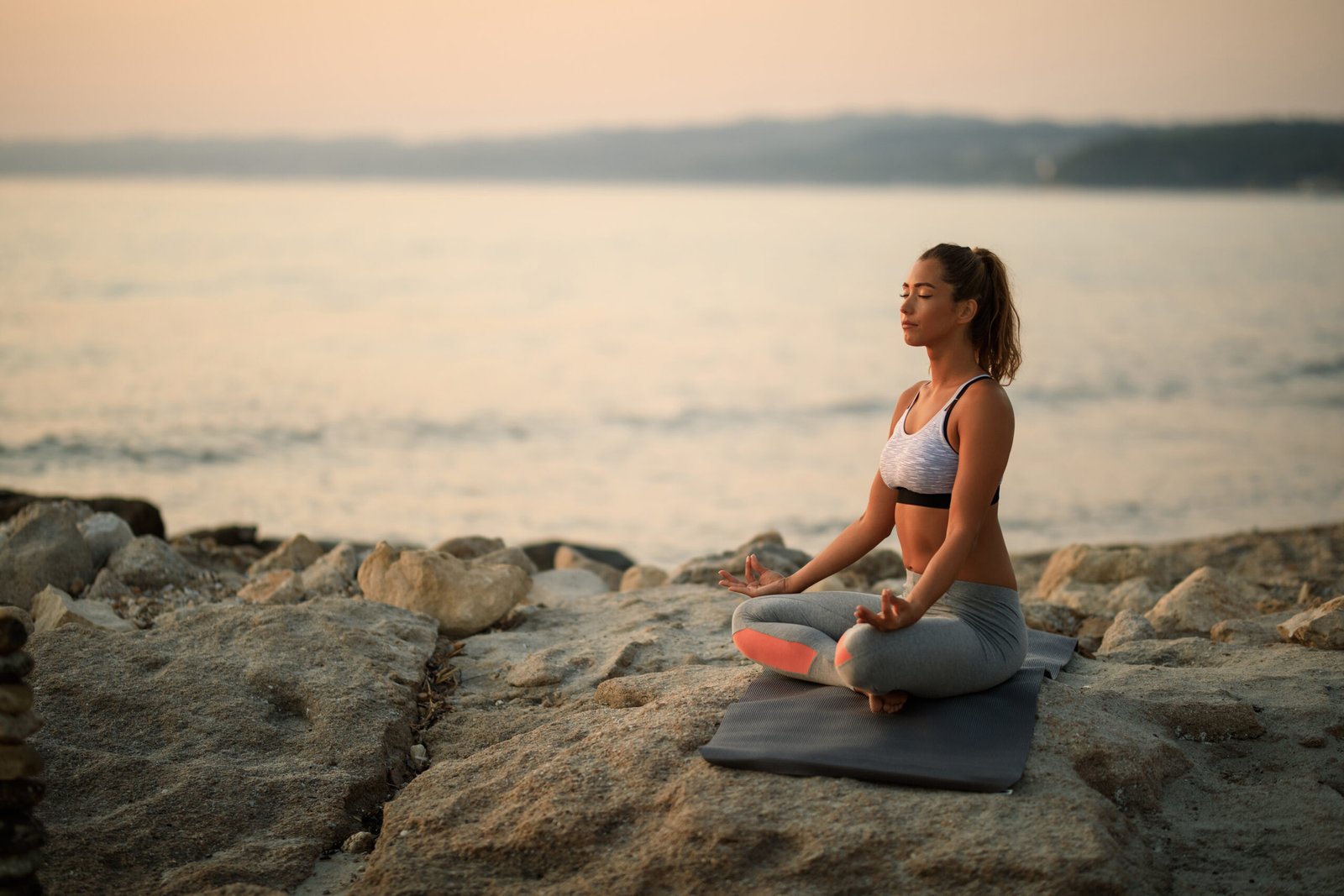Now Reading: Mindfulness: A Simple Path to Calm, Focus, and Inner Peace
-
01
Mindfulness: A Simple Path to Calm, Focus, and Inner Peace
Mindfulness: A Simple Path to Calm, Focus, and Inner Peace

A Simple Path to Calm, Focus, and Inner Peace
Mindfulness is the practice of being fully present in the moment—aware of your thoughts, emotions, and surroundings without judgment. In our fast-paced world filled with distractions, Conscious attention helps us slow down, breathe, and reconnect with ourselves. It’s a powerful tool for managing stress, improving mental clarity, and boosting emotional resilience.
Practicing Presence doesn’t require hours of meditation. It can be as simple as taking a few deep breaths, focusing on your senses, or paying full attention to a conversation. The goal is to create space between stimulus and response—so you respond thoughtfully rather than react impulsively.
Benefits of Practicing Mindfulness
Mindfulness has been linked to numerous mental and physical health benefits. Regular practice can lead to:
- Reduced Stress and anxiety
- Better Focus and concentration
- Improved Sleep quality
- Emotional Regulation and less reactivity
- Enhanced Self-Awareness and decision-making
It’s also a helpful tool in managing depression, chronic pain, and high blood pressure.
Simple Mindfulness Techniques to Try Daily
You don’t need to be a monk or a yoga expert to practice mindfulness. Here are easy ways to start:
- Mindful Breathing: Focus on your breath for one minute.
- Body Scan: Slowly bring awareness to different parts of your body.
- Mindful Eating: Eat slowly and savor every bite.
- Tech-Free Time: Take short breaks without screens or multitasking.
- Gratitude Check-In: Pause and note 1–3 things you’re grateful for.
Mindfulness in Everyday Life
Whether you’re stuck in traffic, waiting in line, or feeling overwhelmed, Conscious attention offers a way to return to calm. It helps you become more patient, compassionate, and grounded. Over time, it transforms how you relate to your thoughts, emotions, and the world around you.
Mindfulness is not about escaping life—it’s about fully living it. By learning to be present, you unlock a sense of peace that isn’t shaken by the outside world. Start small, stay consistent, and watch how even a few mindful moments a day can change your life.
Mindfulness Is About Being Right Here, Right Now
In today’s fast-moving world, our minds are constantly racing — juggling to-do lists, scrolling through social media, and worrying about the future or replaying the past. This is where mindfulness becomes such a powerful and necessary tool. At its core, mindfulness means paying full attention to the present moment — without judgment, without distraction.
It’s not about emptying the mind or sitting cross-legged for hours. Mindfulness is about becoming aware: of your breath, your surroundings, your emotions, and your thoughts — exactly as they are. It’s a gentle shift in how you relate to your experience, turning autopilot off and tuning into life with clarity.
How I Started Practicing Mindfulness (and Why I Didn’t Think It Would Work)
I’ll be honest — I used to think mindfulness was just a buzzword. I imagined it meant meditating for hours or forcing myself to “calm down.” But one day, feeling overwhelmed, I tried something simple: I stopped, took a deep breath, and just noticed what I was feeling. No fixing, no judging — just noticing.
That tiny pause was my first real step into mindfulness. Since then, I’ve learned it’s not about being perfectly peaceful all the time. It’s about creating small moments of awareness in your everyday life — during a walk, while sipping tea, or even when stuck in traffic. These moments matter more than we realize.
The Real Benefits of Mindfulness (Backed by Science)
What makes mindfulness powerful is that its benefits are both felt and proven. Here’s what consistent mindfulness practice can do:
- Reduce stress and anxiety: By focusing on the present, mindfulness lowers cortisol levels and helps break the cycle of overthinking.
- Improve focus and productivity: Being aware of what you’re doing right now reduces distractions and improves task performance.
- Enhance emotional regulation: It becomes easier to respond thoughtfully instead of reacting impulsively.
- Increase self-awareness: You begin to recognize thought patterns, triggers, and habits — and gain space to shift them.
- Promote physical well-being: Mindfulness can improve sleep quality, lower blood pressure, and boost the immune system.
The key? You don’t have to be a monk or a yogi to feel these effects — just start where you are.
Easy Ways to Bring Mindfulness into Everyday Life
You don’t need hours or a quiet retreat to be mindful. Here are some beginner-friendly ways to integrate mindfulness into your day:
1. Mindful Breathing
Take a few minutes to focus only on your breath. Inhale deeply… exhale slowly. Feel the air move in and out. If your mind wanders, gently bring it back.
2. Mindful Eating
Slow down during meals. Notice the textures, flavors, and smells of your food. This not only enhances digestion but also helps build appreciation and presence.
3. Mindful Walking
Put your phone away and take a short walk. Feel your feet touch the ground. Listen to the sounds around you. This simple practice can shift your whole mindset.
4. Body Scan Before Bed
Lie down and bring attention to each part of your body, from head to toe. Notice where you’re holding tension, and allow it to release. It’s a powerful way to unwind at night.
Mindfulness Is a Practice, Not a Perfection
Mindfulness isn’t about “doing it right” or becoming perfectly calm. It’s a practice — something you return to again and again, with patience and kindness.
In a busy world, mindfulness offers a quiet reminder: this moment is enough. You are enough. You don’t need to chase clarity — it’s already within you, waiting for your attention.
Start small. One breath. One mindful moment. That’s all it takes to begin.

















